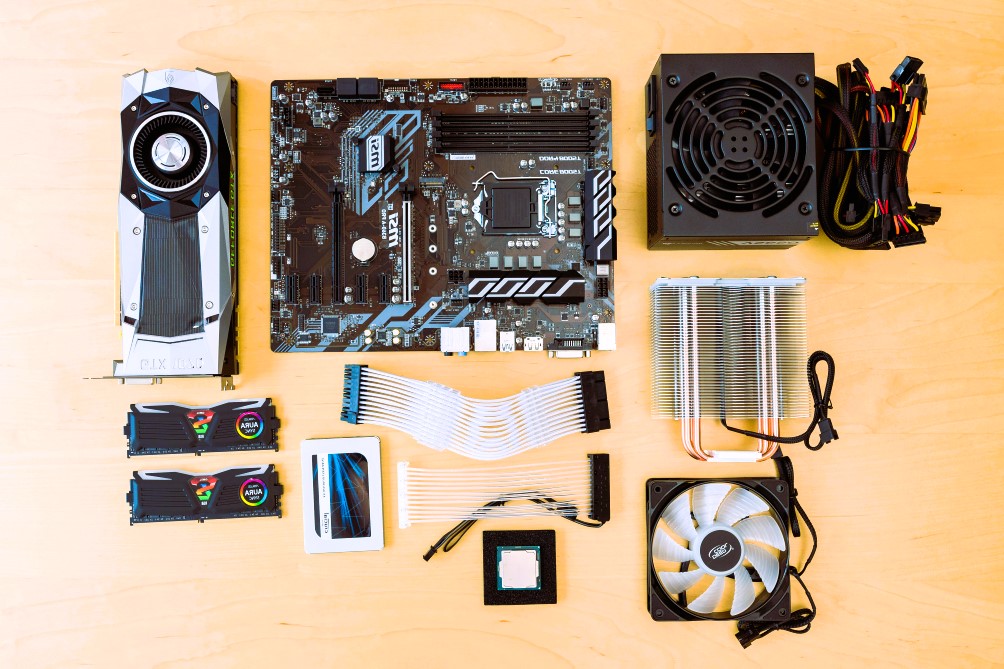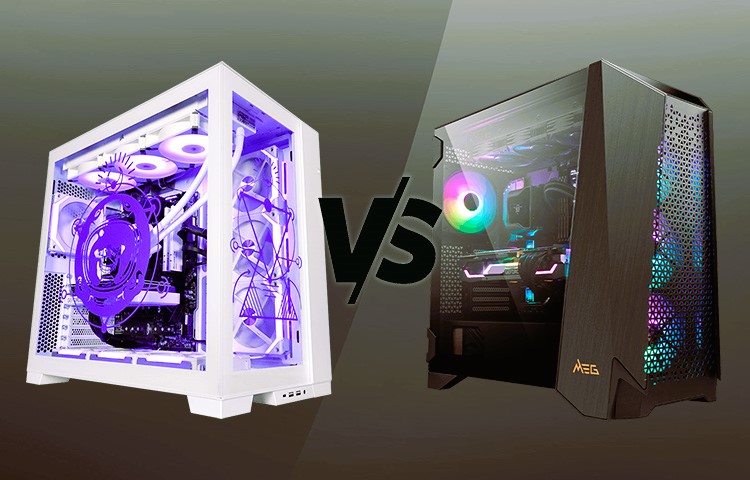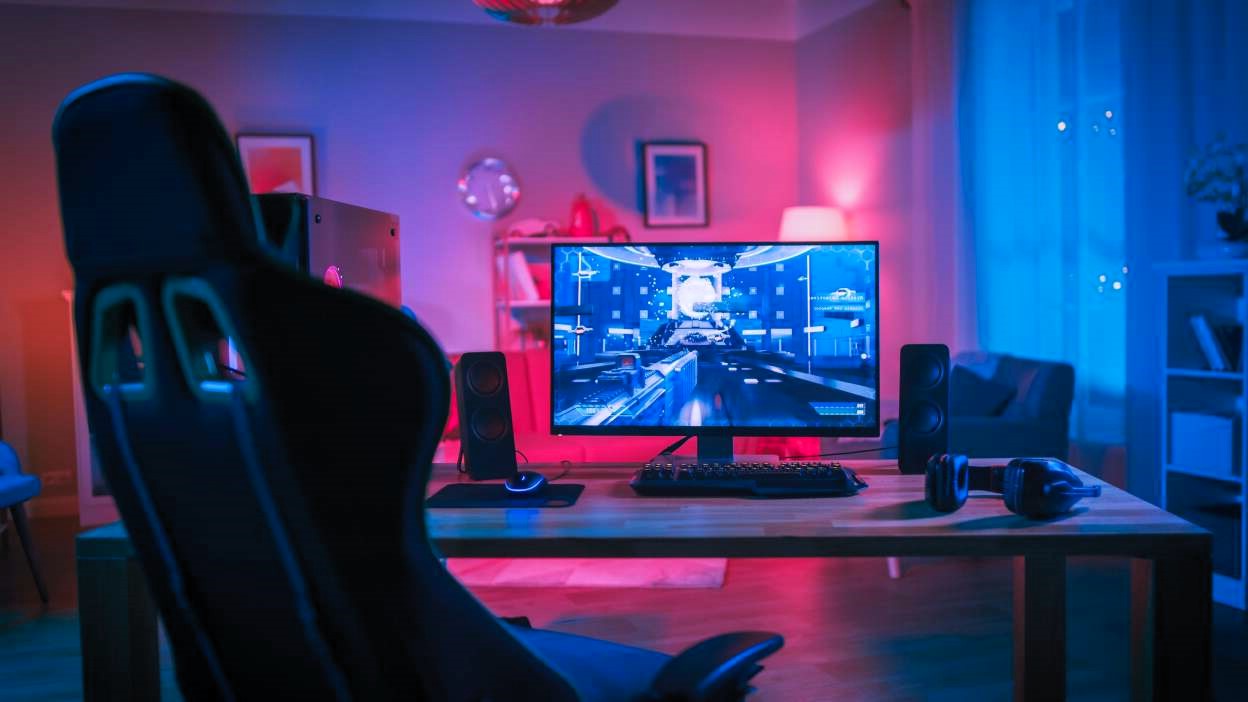When it comes to gaming, having the right equipment can make all the difference between a smooth, immersive experience and one filled with frustrating lag and crashes. Choosing the best gaming PC is an essential step for anyone looking to level up their gaming experience. However, for beginners, it can be a daunting task, given the overwhelming number of options available and the constant advancements in technology. This guide will walk you through the key factors to consider when selecting the best gaming PC for your needs.
1. Understand Your Gaming Needs
The first step in choosing the right gaming PC is to assess your gaming needs. Are you a casual gamer who enjoys less demanding games, or are you a hardcore gamer looking to play the latest AAA titles at the highest settings? Your requirements will heavily influence the specifications you need in your PC.
- Casual gaming: If you mainly play older or less graphically intensive games (such as Minecraft, League of Legends, or Fortnite), you won’t need the most high-end components. An entry-level gaming PC with moderate specs will suffice.
- High-end gaming: For those who want to play the latest AAA games, VR titles, or engage in competitive esports, you’ll need a powerful PC with advanced specifications to ensure smooth performance.
Once you have an understanding of your gaming requirements, it will be easier to determine the performance levels needed from your PC.
2. Key Components of a Gaming PC

A gaming PC is made up of several key components, each of which contributes to the overall performance. Understanding these parts is critical to making an informed purchase.
Processor (CPU)
The CPU is the brain of your gaming PC, handling all the calculations and tasks required to run the game. For gaming, you’ll want a multi-core processor with high clock speeds to ensure fast performance.
- Intel vs. AMD: Intel and AMD are the two leading CPU manufacturers. Intel’s Core i5 and i7 processors are a solid choice for most gaming setups, while AMD’s Ryzen 5 and Ryzen 7 offer excellent multi-core performance and better value for money in some cases.
- Consider the Core Count and Clock Speed: For gaming, a quad-core or hexa-core processor with speeds of 3.5 GHz or higher should be sufficient for most games. Higher-end games may require more cores for optimal performance.
Graphics Card (GPU)
The GPU is arguably the most important component when it comes to gaming. It handles all the rendering of images, videos, and graphics, determining how visually stunning and smooth your game looks.
- NVIDIA vs. AMD: The two leading manufacturers of GPUs are NVIDIA and AMD. NVIDIA’s GeForce GTX and RTX series are known for their exceptional performance, especially for high-end gaming and ray-tracing features. AMD’s Radeon RX series offers great value for the money and performs well in mid-range gaming setups.
- VRAM (Video RAM): When choosing a GPU, make sure to select one with enough VRAM (usually 4GB, 6GB, or 8GB), as modern games require more memory to render high-quality textures and graphics.
Memory (RAM)
RAM plays a crucial role in allowing your PC to multitask effectively, loading game data quickly and ensuring smooth gameplay. For gaming, 8GB of RAM is considered the minimum, while 16GB is recommended for more demanding titles or streaming.
- Speed: Look for DDR4 RAM with speeds of at least 3000 MHz for better performance.
Storage (HDD vs. SSD)
Storage is an essential component to consider. There are two main types of storage drives:
- Hard Disk Drive (HDD): HDDs are slower and cheaper, offering more storage capacity but at the cost of speed.
- Solid State Drive (SSD): SSDs are faster, providing quicker load times and smoother performance, especially for larger games. For gaming, an SSD is highly recommended for your operating system and frequently played games, while an HDD can be used for additional storage.
A combination of a 500GB or 1TB SSD and a 2TB HDD is often an ideal setup for gamers. Did you like the article? Read also about History of RPGs games.
Motherboard
The motherboard connects all the components of your PC together. It’s essential to choose a motherboard that is compatible with the CPU, GPU, and other components. Ensure the motherboard has enough expansion slots and ports to accommodate future upgrades.
- Chipsets: When choosing a motherboard, look for a chipset that supports the latest generation of CPUs and has enough connectivity options for your needs (USB 3.0 ports, Wi-Fi support, etc.).
Power Supply (PSU)
A reliable power supply unit (PSU) ensures that your components receive enough power without causing system instability. It’s crucial to choose a PSU with enough wattage to support your system’s needs.
- Wattage: A PSU with 600W to 750W is generally sufficient for most gaming PCs. However, for high-end builds with multiple GPUs or overclocking, a 1000W PSU might be necessary.
- Efficiency: Look for a PSU with an 80 Plus certification, which ensures efficient power usage and reduces the risk of overheating.
3. Form Factor and Case
The case of your gaming PC is not just about aesthetics; it plays a role in airflow and component compatibility. A good case will ensure your components stay cool and run efficiently.
- Size and Airflow: Choose a case with good airflow to avoid overheating. Larger cases tend to offer better airflow and space for future upgrades. Some gamers prefer sleek and compact cases, while others choose larger cases for additional cooling options and better cable management.
4. Budget Considerations
Gaming PCs can range in price from a few hundred dollars to several thousand, depending on the components you choose. Set a budget based on your needs and stick to it.
- Entry-level builds (under $700) are good for less demanding games and casual gaming.
- Mid-range builds (around $1000-$1500) provide excellent performance for modern titles at high settings.
- High-end builds ($2000 and above) are for gamers looking to play the most graphically demanding games at ultra settings and are future-proofed for upcoming titles.
5. Pre-built vs. Custom-built PCs

When it comes to gaming PCs, you have two main options: pre-built or custom-built.
- Pre-built PCs are ready to use right out of the box. Many gaming brands like Alienware, Corsair, and MSI offer high-performance gaming desktops. They come with a warranty and technical support, making them ideal for beginners.
- Custom-built PCs allow for more flexibility and personalization. If you have the technical know-how, building your own PC can save money and allow you to choose the exact components you need. There are also PC building services that can assemble a custom PC for you if you prefer not to do it yourself.
Choosing the best gaming PC requires a balance between your gaming needs, budget, and future-proofing. By understanding the key components and selecting the right specifications, you can ensure a smooth and enjoyable gaming experience. Whether you choose a pre-built system or opt for a custom build, it’s important to consider the processor, graphics card, storage, and cooling systems to get the most out of your gaming setup.
For more detailed specifications and recommendations on gaming PCs, you can check out Wikipedia’s Gaming PC page.



